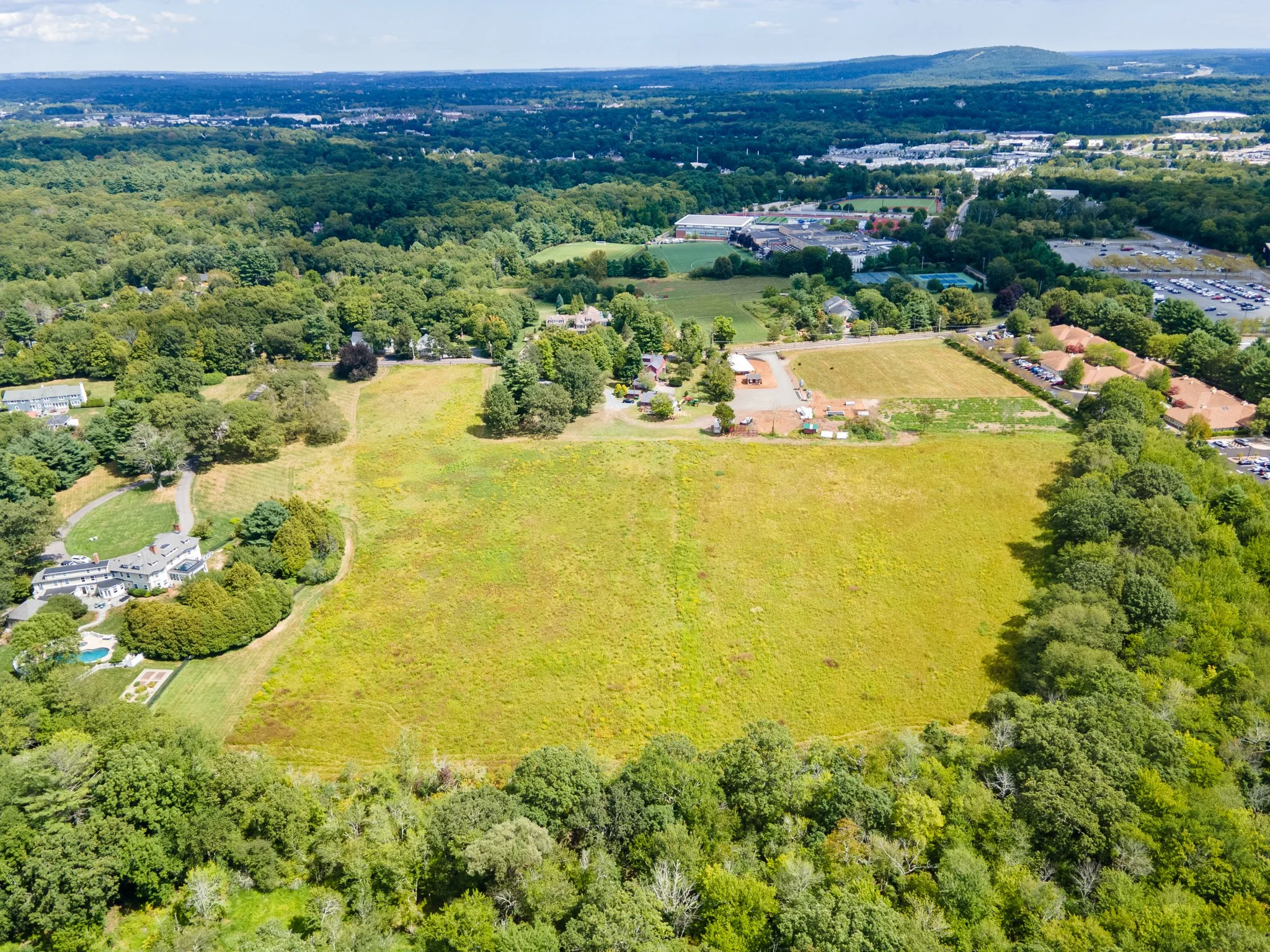Preserve Clapboardtree Meadow, Honor the Promise
By Karen Manor Metzold, Westwood Land Trust Board Member and Past President
I have served on the non-profit Westwood Land Trust (WLT) Board for 22 years - 14 as President. WLT protects over 220 acres of land in town through 12 conservation easements. You know that you are home in Westwood when you drive down Gay, Hartford, Summer or Clapboardtree Street and see an open field or historic estate protected by a WLT conservation restriction. Westwood would not be the same without the Land Trust.
Christopher Bean argued in his September 22 letter to the Select Board that the conservation restriction (CR) on 665 Clapboardtree Street (Clapboardtree Meadow) was created to preserve the land for farming. That’s not the case. Duncan and Ellen McFarland purchased that land to prevent it from being developed with the express goal of protecting the scenic view and keeping the meadow in its open and natural state. As the donors of the CR, the McFarlands had the right to set the parameters for how the conservation land would be used in the future. The McFarlands put the money and effort into protecting that property and entrusted the Westwood Land Trust to enforce those protections. It is the Land Trust’s responsibility and the Town’s obligation to honor the intent of the CR.
Clapboardtree Meadow isn’t a field of weeds waiting for cultivation, as Mr. Bean suggests. It is a rare, fully mature meadow - a thriving, self-sustaining ecosystem rich with biodiversity. Meadows like this are vanishing across eastern Massachusetts. This one provides critical habitat for pollinators, supports birds and other wildlife, stabilizes the soil, and protects the quality of nearby Plantingfield Brook. It is a natural safeguard against invasive species and a living classroom for what conservation looks like when it succeeds.
An aerial photo of the meadow.
The CR is clear: cutting or clearing vegetation, planting crops, or using pesticides is prohibited. While there is a process by which exceptions may be requested, those exceptions must not materially impair the land’s conservation values. The Town sought such an exception for farming, and the Land Trust reviewed it carefully with advice from wildlife and meadow specialists. The conclusion was clear and unavoidable: plowing up a healthy meadow and replacing native habitat with a farm would destroy the very qualities the CR was designed to preserve.
Mr. Bean has implied that his family’s involvement with the land gives him both special standing and the support of the McFarlands that originally donated it. That implication is false. The McFarlands do not support transforming this meadow into farmland. In fact, they recently presented the Town with an offer to buy the land back from the Town for $475,000, in order to ensure that the land that they have already protected once could remain undisturbed. Their stance underscores the original intent of the CR: keeping the beautiful view and allowing the meadow land to remain in its natural state.
Mr. Bean’s letter implies that The Bean Farm has some entitlement to lease the land from the Town and extend its farm onto this neighboring property. Even if the Town could lease the property to someone else, competitive bidding would apply - meaning no farm, not even The Bean Farm, has a guarantee on any lease. More important, conservation restrictions are not written to favor any business or individual. They are written to protect land forever, regardless of who occupies it.
This debate is not about choosing sides between farmers and conservationists. Each has its place, but Clapboardtree Meadow was set aside as conservation land - a decision made years ago to benefit the entire community. The Town’s lawsuit against the Land Trust, funded by taxpayer dollars, prioritizes one person’s business plan over the long-term public good.
Conservation only works if we honor the intent behind it. Once a meadow like this is gone, it cannot simply be replanted or rebuilt. It would take decades and cost an extraordinary sum to recreate the balanced, resilient ecosystem that we now have. To sacrifice it now for short-term use would be to break faith with the generous donors who worked hard to protect it - and with those who will inherit Westwood’s landscape in the future.
Protecting this meadow means protecting more than scenery. It means safeguarding clean water, wildlife, and nature. That was the promise when this land was conserved, and it is a promise worth keeping.
